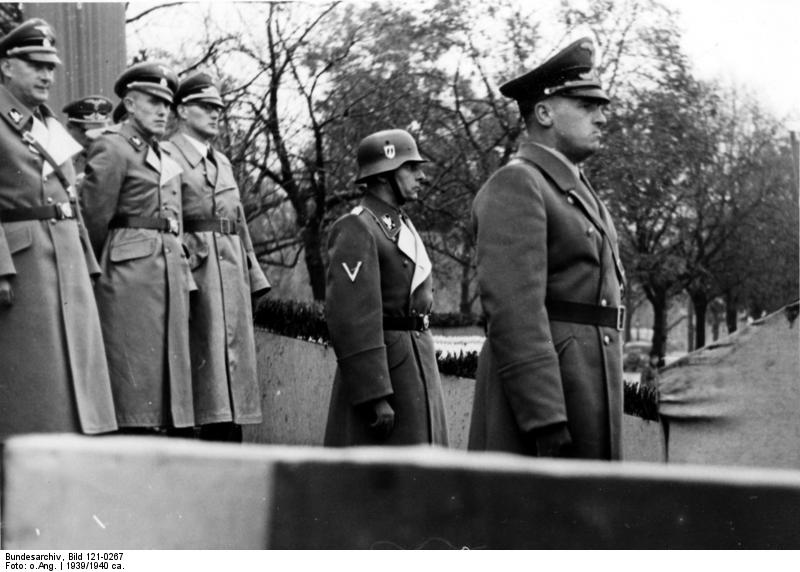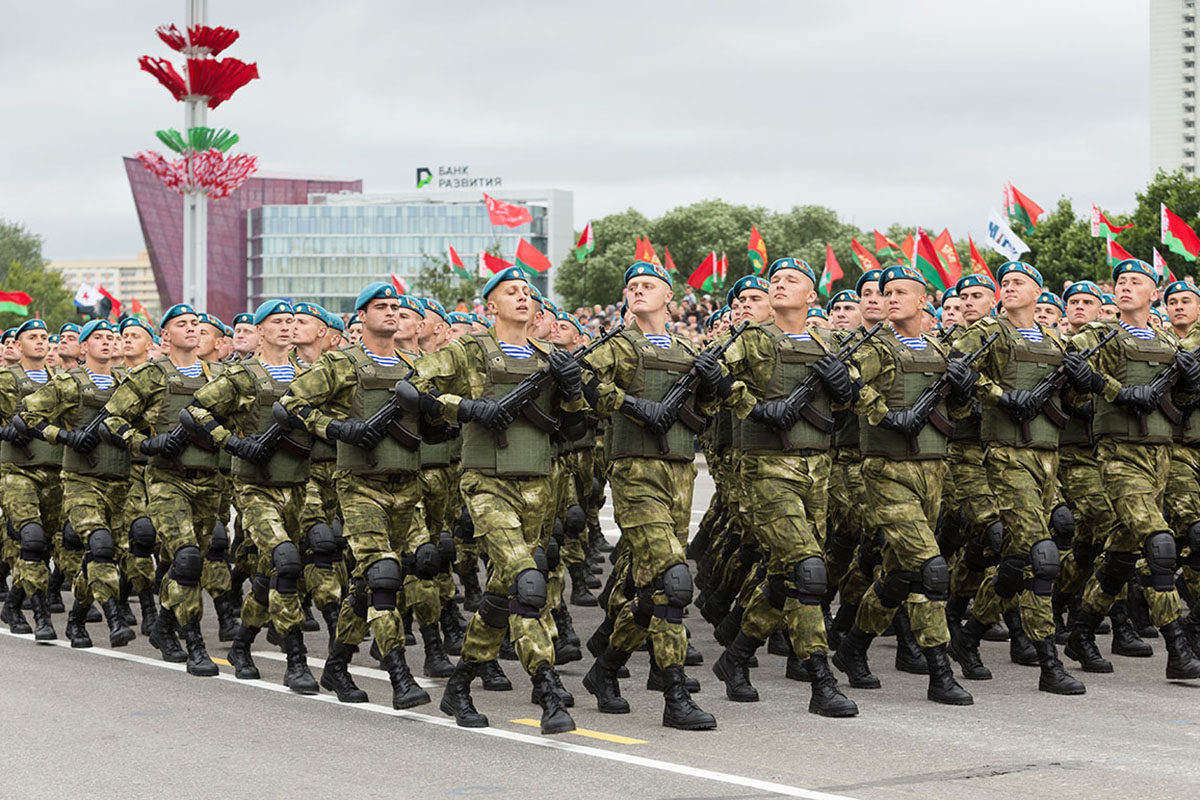Horror of the German AB-Aktion against Poland

Authorities of the General Government exterminated at least 3,500 members of the elite of the Polish society.
Marek Gałęzowski
The German policy in Poland has been exceptionally brutal since the beginning of the occupation, according to the announcement made by Heinrich Himmler, Head of the Reich Main Security Office, that the extermination of Poles was the fundamental duty of the German nation. As he stated „Poles will be wiped off the surface of the earth”. The methods used to achieve that goal included the extermination of the elite of the Polish society („Polish leading classes” – as claimed by the occupants) and transformation of the remaining part of the society into labour force deprived of national and cultural identity, whose only task was to be the performance of slave work for the Third Reich.
Decision of Hans Frank
„The goal […] is to rapidly get rid of all those mutinous resistance movement politicians, which are in our hands, and politically suspicious individuals; at the same time, the aim of this plan is to crack down on the Polish banditism we have inherited. I openly admit that several thousands of Poles, including in particular those belonging to the group of spiritual leaders of Poland, will pay for it with their lives” – said Hans Frank, the General Governor, on 30 May 1940 in Cracow.
Even before these words were spoken, at the beginning of March 1940, he ordered preparations for the so-called Extraordinary Operation of Pacification (in German: AB-Aktion or AB). The operation was directed against the Polish intelligentsia considered to be the foundation of the independence conspiracy rising throughout Poland. Ground-breaking decisions concerning the execution of that operation were made on 16 May of that year, and Hans Frank could count, among others, on Wilhelm Krüger, commander of the SS and police in the General Government, as well as Brunon Streckenbach, commander of the German Security Service (SD) and the Security Police in the General Government, both of whom helped Frank with the preparations of that operation.
The AB-Aktion started during the German offensive in France for a reason. It was certain that the international public opinion would focus on the acts of war taking place in the western parts of Europe. The main places where the Polish nationals were executed included: Palmiry in Puszcza Kampinoska near Warsaw, Cracow, Jasło and Ropczyce in Rzeszowskie province, Rury Jezuickie in Lubelskie province, and Kumowa Dolina near Chełm, as well as areas close to Częstochowa, a stadium located in a forest in Kielce, and Firlej in Radom. In total, not less than 3,500 members of intelligentsia and ca. 3,000 regular criminals were killed. Germans did not on purpose as they put an equal sign between the criminals and the Poles fighting in the underground for independence. Moreover, several dozen thousand people were transported to concentration camps. Only few of them survived.
Palmiry
Most people were murdered in Palmiry. It is the place of death of, among others, Maciej Rataj – an eminent leader of the peasant movement and speaker of the Lower Chamber of the Polish Parliament, Mieczysław Niedziałkowski, one of the leaders of the Polish Socialist Party, editor in chief of the main underground newspaper published by the party entitled “Worker” („Robotnik”) – both of whom assisted General Michał Tokarzewski-Karaszewicz, Commander in chief of the Service for Poland’s Victory, in the development of the political structure of that organization. Other prominent Poles murdered in Palmiry are: Janusz Kusociński, one of the most famous Polish athletes, and a gold medallist of the Olympic Games in Los Angeles, Helena Jaroszewiczowa, senator of the Republic of Poland, Stefan Kwiatkowski, Vice-President of the Society of Secondary School and College Teachers, Stanisław Piasecki, an eminent activist of the national democracy movement, Dawid Przepiórka, one of the most famous chess players before the World War II, as well as many secular clergymen, including, among others, Jan Golędzinowski who was a parish priest in the Warsaw Parish Church of Christ the King. Many authors who contributed to the development of the Polish culture in the interwar period, including Witold Hulewicz, also lost their lives in Palmiry.
Translator of Rilke’s works
This writer and translator was born in 1895 in the Greater Poland region, at that time, being a part of the Prussian partition. During the World War I, he served in the Kaiser’s army on the Western Front, and later, after the war, fought against Germans in the victorious Greater Poland Uprising. In the free Poland, unlike his brother Bohdan, who pursued a military career, Witold Hulewicz became a writer and translator. He was member of the group named Zdrój, author of poetry, prose and radio dramas, as well as pioneer of the radio theatre in Poland. First of all, however, he became famous for his translations of the German literature, being the first one to introduce the poetry of Rainer Maria Rilke, with whom he made friends, to Polish readers. In the 20s’ he was one of the eminent animators of Polish culture in Vilnius. As recalled by Czesław Miłosz in „Self-portait of a difficult man – conversations with Aleksander Fiut”, „the presence of Hulewicz in Vilnius was very strong. Especially in the literary and artistic circles. Hulewicz was everywhere”.
During the German occupation, Witold Hulewicz was an editor of the first Polish underground newspaper „Polska Żyje” (“Poland is Alive”), which was issued by an organization named the Defenders of Poland Corps. In that newspaper, he published among others, information about the devastation of Polish culture by Germans. He was arrested and imprisoned in Pawiak. Hulewicz was tortured during investigation in the Gestapo headquarters at Al. Szucha, which he mentioned in his secret messages sent to his daughter: „They keep asking me about aunt Zosia [Zofia Kossak-Szczucka, a writer who was a co-editor of the »Polska Żyje« newspaper, cooperating with Hulewicz – annotation by M.G.]. They beat me brutally. I didn’t tell them anything”. Since the beginning of 1941, he has been kept in an isolation cell, namely, a „room with such a low ceiling that one could not stand there in an upright position, without window, bed, and full of water on the floor”. As Agnieszka, the daughter of Hulewicz, recollected: „I saw Daddy once again, towards the end of my stay in Pawiak. He was very thin and had gray hair all over his head”.
He died on 12 June 1941 in one of the last executions in Palmiry. Even though the AB-Aktion operation was already over at that time (Polish historians assume that it finished in January 1941), but the Germans kept shooting persons arrested during that operation.
Goal of the invaders
To this day it has not been established whether the AB-Aktion, conducted at the same time as the mass Soviet crimes against the officers of the Polish Army and members of the elites of the eastern provinces of Poland, which were committed in Katyn, Kharkov, Miednoje and Bykowni, was agreed upon between the authorities of the German Third Reich and the Soviet Union. The goal of these crimes was identical – to murder people who would never accept the violence of both totalitarian systems aimed at Poland. The death of both daughters of the General Józef Dowbor-Muśnicki, military commander of the Greater Poland Uprising, namely, Janina Lewandowska, the only woman killed by Soviets in Katyn (most probably on 21 April 1940 – on the eve of her 32nd birthday) and the 21-years-old Agnieszka, who was shot two months later in Palmiry for her conspirational activity, was a symbol of that unwritten cooperation.
„My children should remember that they are Poles…” – General Dowbor-Muśnicki, who died two years before the outbreak of the World War II, wrote in the first sentence of his last will and testament. Members of intelligentsia, Poles dedicated to serve their country, who were murdered by the Germans in the AB-Aktion or killed with a headshot by the People’s Commissariat for Internal Affairs (NKVD) in the East, became victims of slaughter because they were Poles, because they contributed to the Polish independence and because it was certain that they would not allow its defeat in the face of the German and Soviet violence.
This article was published in 2016 in “Do Rzeczy” magazine.



